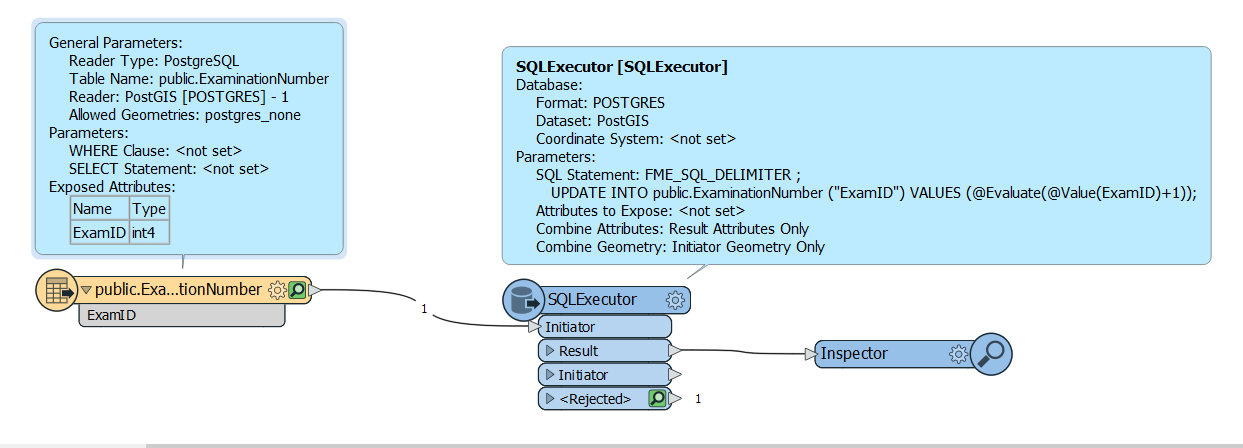Hello all,
Another newby question, sorry :)
I have a table in PostgreSQL which is called ExaminationNumber and has a single column call ExamID.
The ExamID field stores a current count of the examinations processed and is increased by one each time.
I am have a reader that reads from the table and grabs the current ExamID value. I then want to update the value by one using the SQLExecutor but can't get it to work.


Can anyone let me the correct syntax or if there is a better way to go about this?






